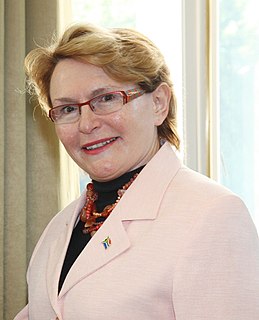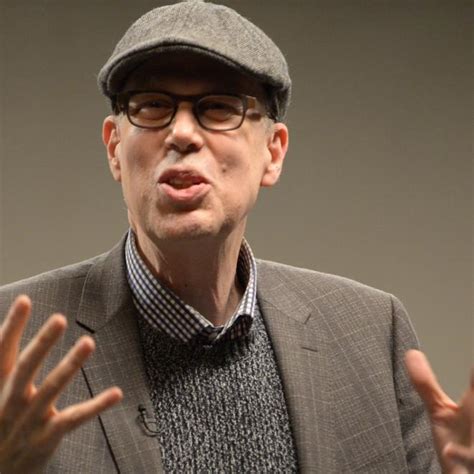A Quote by Miguel Ferrer
The quality of education that children receive early in life has a bearing on their later life that we may never fully understand.
Related Quotes
You must create the character's internal life. What do I mean by internal life? I mean the thoughts, feelings, memories, and inner decisions that may not be spoken. When we look into the eyes of actors giving fully realized performances, we can see them thinking. We're interested in what they're experiencing that may never be spoken, that quality of nonverbal expression - which is as much a part of the characters as breathing and as real as what they say and do. This is their internal life. It helps us believe in the characters and care about them.
Art that means anything in the life of a community must bear some relation to current interpretations of the mystery of the universe. Our rigid separation of the humanities and the sciences has temporarily left our art stranded or stammering and incoherent. Both art and science ought to be blended in our early education of our children's emotions and powers of observation, and that harmony carried forward in later education.
We cannot doubt that barbaric people receive such influences more visibly and obviously, and in all likelihood more easily and fully than we do, for our life in cities, which deafens or kills the passive meditative life, and our education that enlarges the separated, self-moving mind, have made our souls less sensitive.
The aim of education is to develop resources in the child that will contribute to his well-being as long as life endures; to develop power of self-mastery that he may never be a slave to indulgence or other weaknesses, to develop [strong] manhood, beautiful womanhood that in every child and every youth may be found at least the promise of a friend, a companion, one who later may be fit for husband or wife, an exemplary father or a loving intelligent mother, one who can face life with courage, meet disaster with fortitude, and face death without fear.
The idea that boxing lends itself to cinema so well is because it's usually a morality play - good against evil, insecurity and triumph, fear strikes out, so the audience can really get drawn into the drama of it. Also, it was sensual and very primal. I think subliminaly we do two things - life is a fight, life is a struggle and we understand that from our early, early, early ancestors, and life is a race.



































